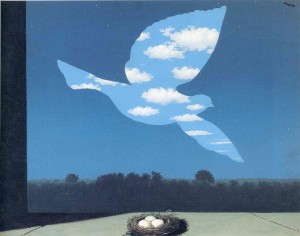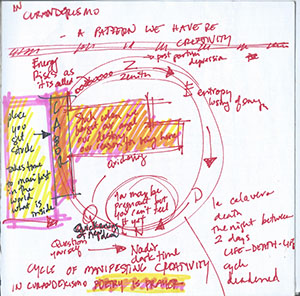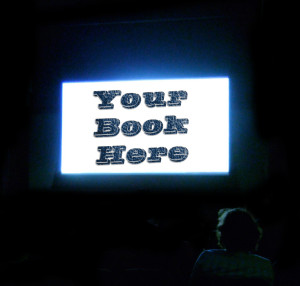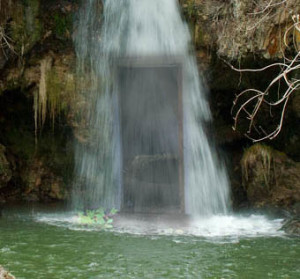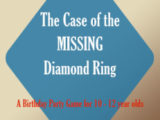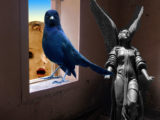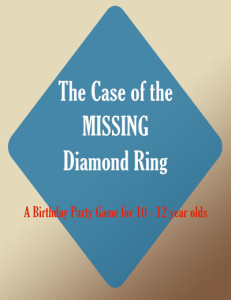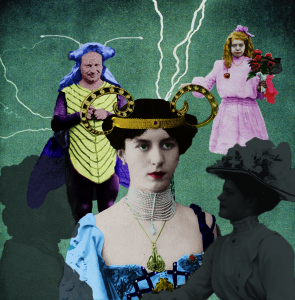What is it about the “Muse,” that other great invention of the Greeks, that allows the idea to withstand twenty-two hundred years of human history?
I think it’s because the Muse allows us to make personal both “aha” moments and that otherwise unnameable force which fills our minds and bodies and then flows freely out again to make the work we do sing.
The Muse knows no bounds. The Muse is never blocked. The Muse surprises the hell out of us.
The Muse can also be elusive. Many writers have talked about how to invite the Muse, from scheduling the same times every day to do your work so the Muse knows exactly where and when to find you ready to put in your time. Steven Pressfield in his wonderful book, The War of Art, uses The Invocation of the Muse from Homer’s Odyssey each day before he writes.
For me, my small studio is much like an altar,

filled with things that have personal meaning, from my strange old dolls to cards from my daughter and husband, to stray pebbles and shells.
Finding your way, trying ideas from others, hitting upon something that works just for you–is one of the best journeys you’ll ever take.
Part of my own journey was being fortunate enough to be in a workshop with Dr. Clarissa Pinkola Estes (Women Who Run with the Wolves). She talked of a cycle of manifesting creativity. Here’s a page from my notes:
Here’s the interpretation for the many of you who won’t be able to decipher my writing. At the top is the Zenith, which might happen just as we’ve achieved something good. After that, a post mortem depression can set in which leads to E, for Entropy, losing energy. Next is D, for Death which we can see as La Calavera, the dapper skeleton, the night between two days, part of the Life-Death-Life cycle. In other words, it’s a place where we might despair and feel deadened. The Nadir follows. This is the dark before the dawn, when you question yourself (this is a lousy idea…I can’t do this…). Yet this is when you have the seed of a thought, you’re pregnant and aren’t yet aware of it. After the Nadir is the Quickening–the new idea begins tickling the lining of your brain, the inside of your gut. We nourish it from inside.
To manifest in the world what is inside we Labor. When we get stuck here, it is because we forget our angel of destiny, why we are here in the world. Squint and you can see the Muse as the angel of destiny. Labor with the Angel/Muse, and you dedicate yourself to your Voice. We call the Angel/Muse, the Angel/Muse calls back and we get Energy Rising. You make your string of pearls, one by one. Dr. Estes suggests the prayer to these forces is simple: I will do your work. I am ready and open to do your work.
Dr. Estes went on to say that because we are porous vessels, sometimes those forces don’t always understand human limitations, which can push us into creative fatigue and/or wanting to do too much, to fragment yourself. The key to this is to stay on your unique way, in your unique voice. So I’d add to the above prayer: Help me tell my story in my unique voice.
What ways have you conjured the Muse? How does the Muse work with you?
